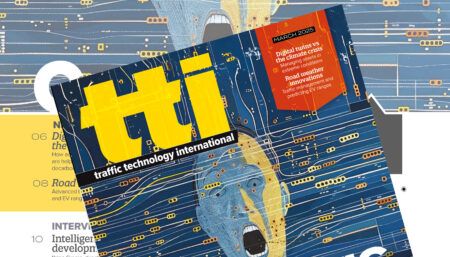Kerbside management and smart parking technology company AppyParking has confirmed its next-generation Traffic Regulation Order (TRO) management solution, developed in partnership with three local authorities, is being used in a live environment as the project progresses to real-world testing.
As part of an Innovate UK-funded initiative, Cambridgeshire County Council, Coventry City Council and Milton Keynes Council have collaborated with product developers at AppyParking over the past nine months to create a kerbside mapping and management software tool known as AppyMapper. The project has uncovered significant opportunities to both relieve the inconvenience endured by Local Authority officers that manage TROs and deliver substantial operational efficiencies. Early feedback is suggesting the solution is already reducing time to edit and change TROs, with significant savings compared with existing software solutions. Empowering local authorities to manage TROs digitally is essential to deliver the Department for Transport (DfT) objectives laid out in the government’s Future of mobility: Urban strategy report.
AppyParking works collaboratively with local councils to help them better manage traffic and the kerbside, enforce TROs and Traffic Management Orders and modernize their infrastructure. Created to act like ‘air traffic control’ for cities, the company’s kerbside management platform is the first web-based platform to consolidate parking and traffic management requirements into one easy-to-use system. The platform has been designed to take the stress out of parking for residents, while laying the foundations for autonomous and electric transport in cities, and Mobility as a Service innovations. The development of the AppyMapper solution fully supports the DfT’s work in digitizing TROs and also works with the Alliance for Parking Data Standards.
“We have identified real savings in the time it takes to upload and edit data in our zone-based parking approach,” noted Sunil Budhdeo of Coventry City Council. “Work which used to take several weeks is now done in a few hours. This will allow us to be more flexible in the future and support our mobility projects.”
 David Lines, highways engineer at Cambridgeshire County Council, agreed, “We’ve been involved in this project to help support the innovative ideas we’re already deploying that all rely on high-quality digital TRO data. The Smart Cambridge program has been looking at how digitized TRO data can support future mobility, such as autonomous vehicles and smart parking, so this is an important requirement for future parking management and we’re pleased to be helping make sure the service meets our needs.”
David Lines, highways engineer at Cambridgeshire County Council, agreed, “We’ve been involved in this project to help support the innovative ideas we’re already deploying that all rely on high-quality digital TRO data. The Smart Cambridge program has been looking at how digitized TRO data can support future mobility, such as autonomous vehicles and smart parking, so this is an important requirement for future parking management and we’re pleased to be helping make sure the service meets our needs.”
Karla Jakeman, connected transport innovation lead, Innovate UK added, “This idea enables a vision for smarter parking for UK local authorities, future proofing them for connected transport and Mobility as a Service. Digital TROs are a core need for other projects we are supporting, and we’re delighted to help bring this innovation to the market.”
Dan Hubert, founder and CEO of AppyParking, said, “The foundation of any intelligent transport solution that needs to interact with the kerb, be that the shared mobility services of today or robo-taxis of the future, has to be an accurate understanding of how to be compliant. Open access to accurate and standardized kerbside restriction data is essential if the UK is to fulfill its potential of becoming a world-leader in intelligent mobility.”





